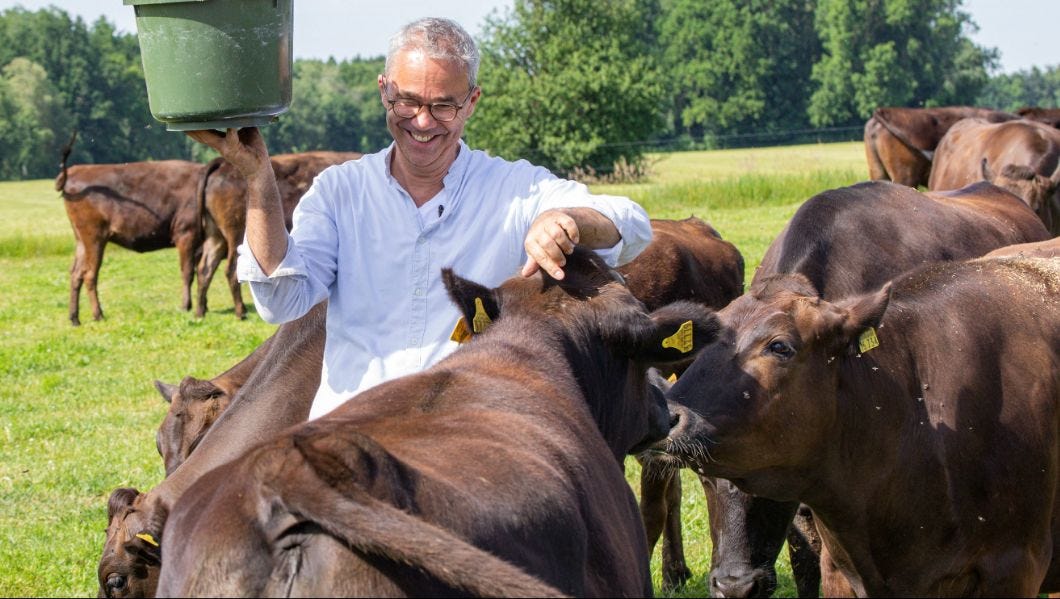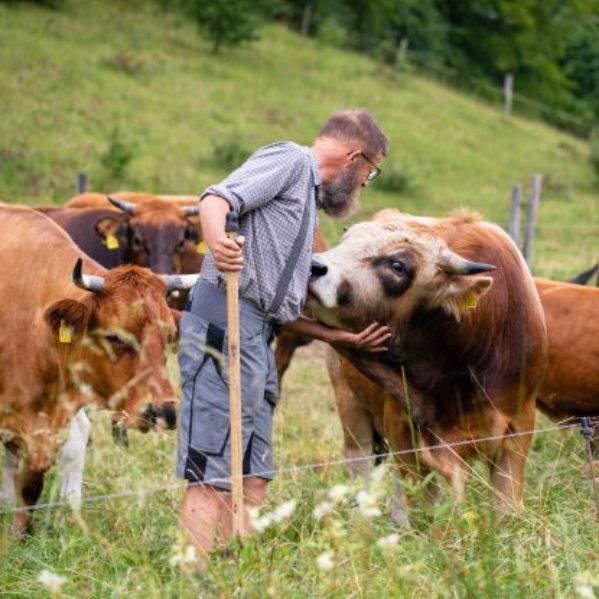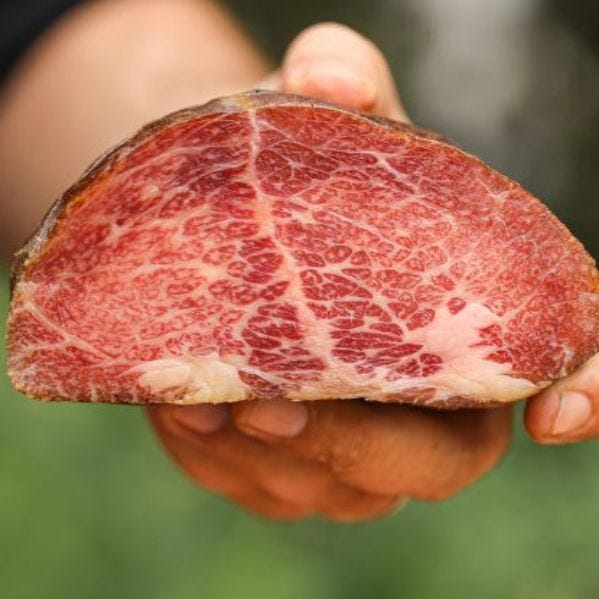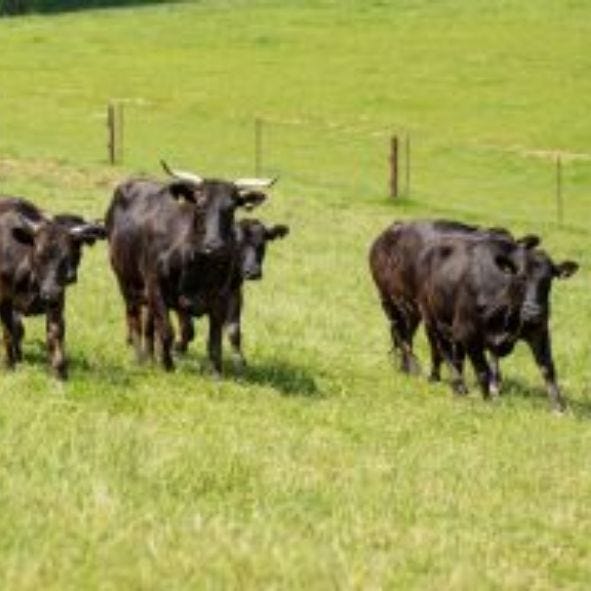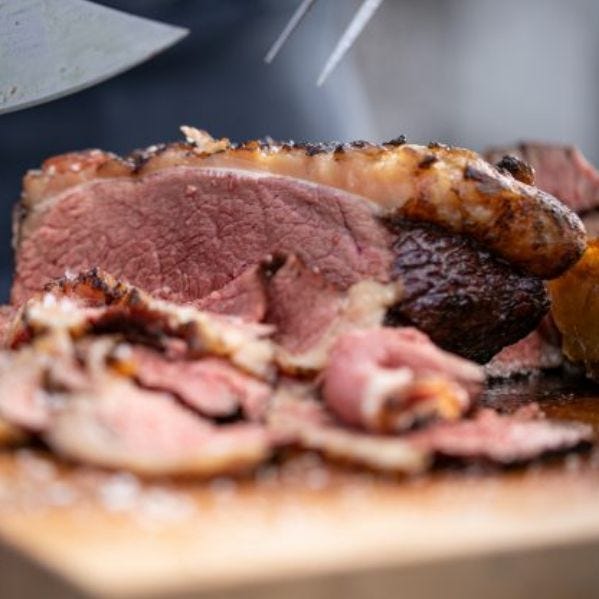Wagyu cattle - modern cattle farming
Wagyu cattle - modern cattle farming
Play
“I was always on the lookout for a good piece of meat and at some point the inevitable consequence of engaging with the topic of meat (...) is that you reach the following conclusion: so much is done wrong. I’ll do it myself!” – Franz Kirchner, Wagyu farmer
Directions
WAGYU CATTLE ON AN INDEPENDENT FARM
Franz Kirchner turned this decision into reality on his Westerberg farm, which we visited on the fourth leg of our Epic Meat Tour. This is one of the most modern and independent Wagyu farms in the whole of Germany. The concept of the farm came about from the idea of adapting the production processes in agriculture to animal welfare. The aim is to set up the farm as a model and show what agriculture could look like in the future. Franz Kirchner highlights 3 criteria for good meat: husbandry, feed and genetics. He tries to perfect these areas to make the meat of his Wagyu cattle into something very special, while giving the animals the lives they deserve.ANIMAL-FRIENDLY HUSBANDRY AND REARING OF WAGYU CATTLE
The translation of Wagyu is “Japanese cow” and the term is used for certain breeds of cattle of Japanese origin. What makes Wagyu cattle special is the intramuscular fat that builds up and the fact that this fat has a low melting point. In order to achieve perfect marbling, very soft meat and the lowest possible melting point, Kirchner pays particular attention to the genetics of his animals. The genetics of even young animals is tested and their breeding is adapted accordingly. He also buys animals with a good genetic background. Kirchner says that 60% of the rearing success depends on the genetics of the animals.
Kirchner specifically opts for an animal-friendly approach to farming. Throughout the year, the animals can decide for themselves whether they graze on grass or spend their time in the stall. If you compare the husbandry of the Westerberg Wagyu cattle with organic standards, it soon becomes clear that Kirchner is way beyond those requirements in the way he keeps his cattle. A cow that is kept to organic standards in Germany has about 8m2 of living space. On the Westerberg farm, each cow has around 1000m2. Kirchner considers not only the free movement and exercise of the animals, but also what they eat, which brings us to the final criterion for high-quality meat.
The Wagyu cattle are kept on pasture for 365 days a year and have access to fresh grass at all times. On the Westerberg farm, grass is the main feed for the cattle. The feed is crucial to the flavour of the meat for Kirchner. But he has also opted for grass feed for another reason, as it creates a functioning cycle. The cattle are fed on grass, produce milk for their calves and simultaneously produce dung for the fields. New grass flourishes as a result, which in turn goes into feeding the cattle.
The right husbandry and feed for the cattle and effective management of their genetics give the meat of the Westenberg Wagyus its very high quality. The fat has an extremely low melting point and will begin to render even at room temperature. Genetics is crucial for such a low meting point.
HERE’S HOW TO PREPARE WAGYU BEEF
During our visit, we cooked a rump steak on our All-Star 120. The All-Star is very versatile, as the grill can simply be taken off the trolley, making it ideal for use as a mobile barbecue. In order to cook the Wagyu rump steak perfectly, it is seared on each side for 1 minute to give it an attractive pattern. It should then be placed on the indirect zone. It can rest there until it has reached the perfect core temperature. The cuts of Wagyu should not be taken to a core temperature above 53-54°C. Finally, just sprinkle a little salt on the meat and you will have a perfectly cooked, very juicy rump steak with an intense, meaty flavour.
Hot Tip
Did you know that the rump steak comes from the back of the cow, more precisely the striploin section? You can find out more about this <a href="https://www.charbroil.co.uk/tips/sirloin/">here</a>.

